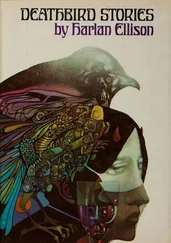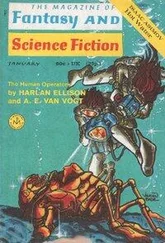Dope.
The Cherokees had been hopped-up. More so than they usually got on a rumble night. Someone had come across with a big packet of pretty decent white-cut, and the raid had followed naturally in the wake of the sky-flight. Almost as though someone had wanted that raid to come off, almost as though someone had needed that raid to cover up Dolores’ murder. Or maybe it was backwards. Maybe whoever had peddled the tea wanted to keep the passing of it quiet, even though the killing was bringing notice to the rumble, almost as though the Cougars and Cherokees were in on it together. The silence of the gangs was oppressive. Too tight for the mere rules of the Code. There was something deeper in this, much deeper. It had to be dope.
Tuesday was a day of warnings. Tuesday was a day of caution and wondering. Why? Why—because of three things that happened after Rusty left Cherokee turf, with the word “narcotics” festering in his mind. Three things, that happened too quickly and too closely together to be mere coincidence or idle interest.
The first incident happened when Rusty went home. He wanted to go out, but where could he go? There was no more information to be had, anywhere. Mirsky had not recognized the boy who had been with the Cherokees when they had warned him to be silent and the Cougars had dispersed effectively. He would have to bide his time, wait, watch. He went home.
Miss Clements was waiting at home. She was sitting straight and stark—a stuffed bird, gathering dust, rigid with death, in the window of a taxidermist. Her nose was a long, thin and sharp projection that dominated her bone-thin face. Deep hollows accentuated the stark outlines of her almost-cruel face. She was, in fact, the perfect representation of a Grimm’s witch, minus the broomstick and the black, peaked hat. Her face was pasty white under her imperfectly applied powder coating. She watched Rusty come through the door. Quick, sharp needle-pointed movements of little brown eyes. The deathly paleness of her face was made all the more remarkable and disturbing by the abundance of freckles that covered her cheekbones, forehead and nose. Rusty despised her.
He had closed the door and taken three steps into the living room before he saw her. But as he did his own body stiffened up, equally as rigid as her own. She sat forward, clutching her little rectangular purse to her lap, the indefinite fabric of her skirt stretched tight across her thin legs.
She cleared her throat with awkwardness and self-consciousness. It was a close sound in the silent living room, against the sealed-out background of New York street noises. Rusty tried to force himself to untwist, to relax before her. This was his home now, not her blackboard-bordered stamping-ground. He was on top here, not her. Now he could call the trick and line up the attitude.
But still the residue of fear and hate from the days in her classes stopped him. He was the pupil, she was the teacher. And that hard, unyielding sharpness was Miss Clements.
“I din’t know you was here…” he began.
She nodded rapidly, as though nervous herself at being in this strange, unfamiliar place, with its Spanish smells and its pictures of Jesus on the wall. Its squalor.
“I came over to—to see you,” she started, her lips barely moving. “You weren’t in class yesterday.”
Rusty realized he had missed the entire day of school. It came to him with an abrupt sense of loss. He had skipped, he had done just what he had promised Pancoast he would not do. He was getting into trouble. Loss, also, for it was a day taken from him, a day in which he might have learned something vital for his new future—the future he had planned for, before Dolores’ death. The future now was a short, red thing that would end suddenly at knife-point or zip-blast. The future now had no need nor room for school or architecture.
He heard her speaking. She had been speaking for the last few seconds. “…And there was a Spanish woman here, she told me about—about your mother, I’m sorry.” She said it all in one fluid run-on, as though it had been rehearsed. She did not mention Dolores. “I wanted to talk to—”
She cut off and her head turned as the brown, wrinkled face of Mrs. Givens peered from the bedroom. The door had opened silently and Rusty had no way of knowing how long the woman had been listening.
“Ey,” she called softly, sharply, nodding back with her head, “ven aca.”
Rusty looked to Miss Clements, worriedly, for a moment, then shrugged within himself, and walked to the bedroom door. Mrs. Givens motioned him inside.
Inside, the room was dim and faintly moist, as before, with the late morning sunlight coming through a rip in the drawn window shade. Resting-place.
Rusty leaned over the edge of the bed to see his mother’s face and felt no emotion at all that she was sleeping once more. Time had lost all meaning for Angelita Santoro. Not as time had stopped for Dolores, but as it stopped when it did not matter.
“She’s all right,” Mrs. Givens said softly, then, “That woman there.” Her tone was one of dislike and distrust. Her words were whispered, but carried the force of a scream.
“She come in a little bit ago, like una mujer loca, a—a crazy woman! All scream and bang on door and she want you to talk, an’—an’—” She trailed off into a quavering silence, her hands flapping. “What’s wrong with her?”
Rusty’s brow furrowed. What was this all about? It was the truant deputy who came around when a kid cut school, not a teacher. Unless it was someone like Carl Pancoast, and Miss Clements had never taken that sort of interest in her pupils. Why was she so interested in him? Rusty bit his lower lip in thought and worried.
“I come in here, make sure she din’t wake Angelita; what she wants with you?” Mrs. Givens’ face was drawn in concern.
Rusty was at a loss to answer. Whatever the woman wanted, it seemed she was going to a lot more trouble than one day of missed schoolwork demanded. “Don’t worry, Miz Givens,” Rusty smoothed her concern, “it’s about school. I missed a couple classes. It’ll be okay, so now don’t worry.”
The little woman nodded her head as though she was reluctant to believe such mad actions could have a basis so slight. But her nod finally changed to one of acceptance. She frowned so two tiny dimples fell in her cheeks, and she said, very, very softly, “Mama is very sick. Very sick. Not so good, but maybe tomorrow she’ll be fine. We’ll see.” Her words had ceased to be conversation. She talked to herself now, the old people way, the old country way. She walked back across the room to the window and stood staring out through the rip in the shade. It cut in sections the silver falling across the room.
Rusty took another look at Moms and renewed his promise. It would be kept, that promise. Finally.
He went back into the living room.
Miss Clements was testing for dust along the top of one low cornice, with a long, white finger. She brought her hand down self-consciously as Rusty came into the room.
Somehow, that meant something. That and the fact that her eyes were very odd looking and her manner was high-strung and her complexion was fish-belly white. All that meant there was more to Rusty’s side of this than she wanted him to know. He felt a new strength in her presence invade his manner, his voice.
“What’d you want, Miss Clements?”
She took a long moment to begin and her hesitation was coupled with a turning of the little handbag. “You shouldn’t miss classes, Rusty,” she said. It wasn’t what she had wanted to say at all.
Rusty did not answer. It was her hoop, let her roll it.
“What I mean is,” she went into her frigid classroom tone, “there are ways and means of making you people attend school when you are required to do so. If you persist in cutting classes, I will be forced to go to the Prin—”
Читать дальше












